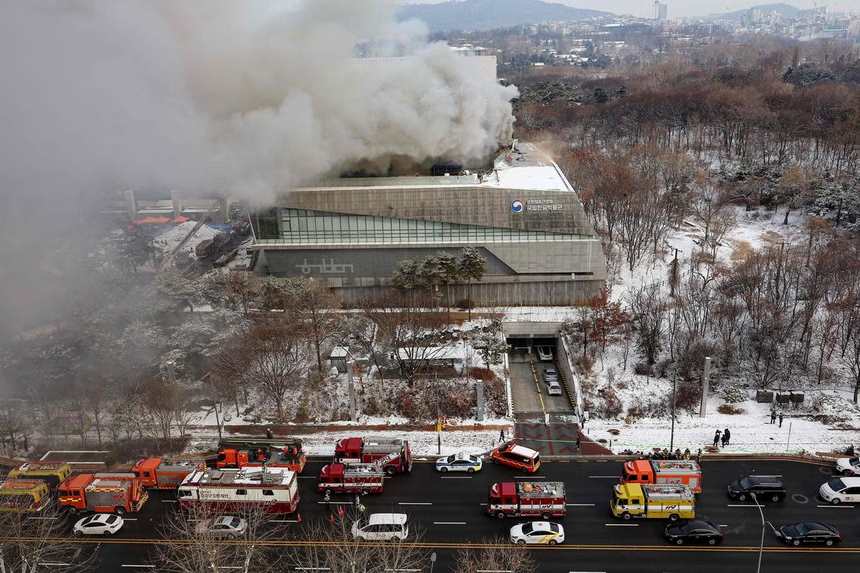Biden and Netanyahu Hold Talks as Gallant Warns of ‘Deadly’ Strike on Iran

Department of Strategic Security and Military Research and Studies 10-10-2024
On Wednesday, U.S. President Joe Biden and Israeli Prime Minister Benjamin Netanyahu held their first conversation in weeks amid expectations of an impending Israeli strike on Iran. Israeli Defense Minister Yoav Gallant warned that any such action would be “deadly, precise, and surprising.”
Gallant made his remarks in a video message broadcast on Israeli media, following the postponement of a planned trip to Washington. He referred to the failed Iranian missile attack on Israel on October 1, vowing that Israel would retaliate.
“Anyone who attacks us will face severe consequences. Our response will be deadly, precise, and unexpected—they won’t understand what happened or how it happened, but they will see the outcome,” Gallant declared.
His message came shortly after Biden and Netanyahu’s conversation, which was also attended by U.S. Vice President Kamala Harris. This call marked the first direct communication between the two leaders in seven weeks, coinciding with growing tensions in the Middle East. Harris’s involvement is notable, as her presidential campaign may be affected by increasing hostilities in the region, including potential spikes in oil prices. Reports also surfaced that Netanyahu had spoken with Harris’s political rival, Donald Trump, just a week earlier.
The White House’s summary of the call did not explicitly reference retaliation for the Iranian missile strike. However, it emphasized Biden’s firm condemnation of the attack and his pledge of “ironclad” support for Israel. The two leaders agreed to maintain close communication in the coming days, both directly and through their national security teams.
While the timing and scope of Israeli retaliation remain unclear, any miscalculation could escalate into a full-scale war between Israel and Iran, something neither nation claims to want. The U.S., a staunch ally of Israel, is cautious about being drawn into the conflict and is particularly wary of any resulting disruptions in global oil markets.
The Biden administration is eager to stay informed on Israel’s plans to avoid unexpected developments, such as the assassination of Hezbollah leader Hassan Nasrallah. Nonetheless, reports indicate that Israel has been reluctant to share detailed plans. Biden, in a previous statement, made clear his opposition to strikes on Iranian oil or nuclear facilities.
Relations between Netanyahu and Biden have deteriorated significantly since earlier this year, particularly following Israel’s actions in Gaza. According to a forthcoming book by journalist Bob Woodward, Biden reportedly lost his temper with Netanyahu in July after Israeli airstrikes near Beirut and Iran, accusing Netanyahu of having no clear strategy.
Meanwhile, Netanyahu’s office confirmed his recent conversation with former U.S. President Donald Trump. Trump congratulated Netanyahu on Israel’s operations against Hezbollah, according to an official statement from the Israeli Prime Minister’s office.
Disagreements reportedly persist within Israel’s security cabinet regarding the appropriate response to Iran’s missile attack. Although Israel’s air defense systems intercepted most of the 180 ballistic missiles fired by Iran, the attack resulted in one fatality in the occupied West Bank and damage to Israeli military facilities. Netanyahu has vowed that Iran will face consequences, while Tehran has warned that further escalation could follow any Israeli strike on its soil.
Israel is wary of entering into a prolonged conflict with Iran, particularly as it remains engaged in military operations in Gaza and Lebanon. In April, after an Iranian missile strike—its first-ever direct salvo—Israel showed restraint in its response, targeting an air defense battery at an Iranian airbase. This time, however, Israel’s reaction is expected to be more severe, though the timing remains uncertain.
A report from Axios indicated that Gallant postponed his trip to Washington at Netanyahu’s request, as the Israeli Prime Minister wanted his cabinet to vote on the attack plans first and speak to Biden before Gallant engaged in talks with U.S. defense officials.
Meanwhile, the conflict along Israel’s northern border with Lebanon appears to be intensifying. On Wednesday, Hezbollah forces clashed with Israeli troops near the Mediterranean coast, with reports of attacks in several villages along the border.
Israeli airstrikes continue in Lebanon, killing four people and wounding ten in the town of Wardanieh, near Sidon. Heavy rocket fire from Hezbollah triggered sirens and air defense responses across northern Israel, resulting in the deaths of two civilians in Kiryat Shmona and injuries to six others in Haifa.
Israel has issued evacuation orders for large swathes of Lebanon, displacing 1.2 million people. In the past three weeks, the conflict has claimed at least 1,400 lives.
During the call, Biden reiterated the importance of minimizing civilian casualties, particularly in densely populated areas of Beirut. Many in Lebanon fear that the country may suffer the same fate as Gaza, where a year of intense fighting has killed 42,000 people. The war was sparked by Hamas’s October 7 assault on southern Israel, in which 1,200 people were killed, and 250 others taken hostage.





